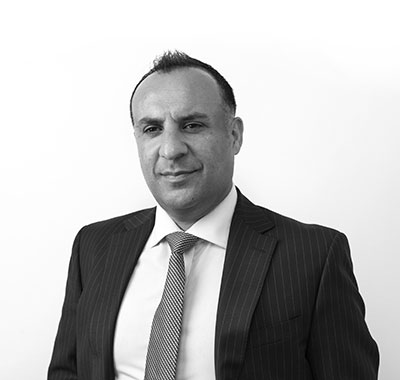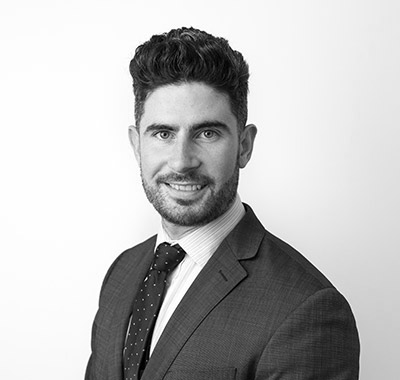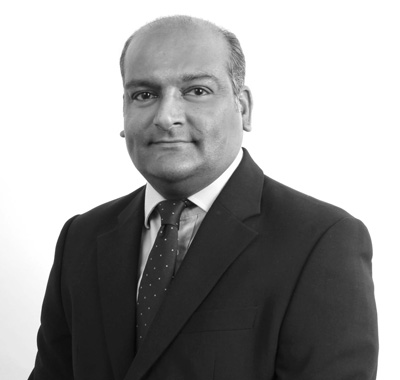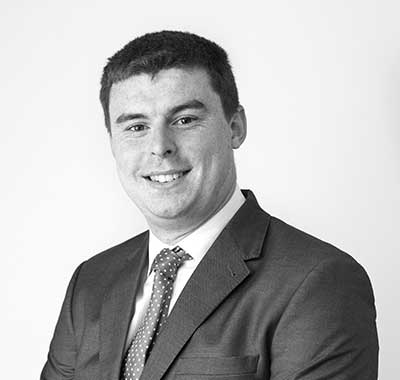Drug Possession Lawyers
At JD Spicer Zeb Solicitors, our criminal defence lawyers have advised and represented a wide range of clients facing possession of drugs charges. Offering the benefit of our specialist expertise in drug possession cases, we expertly guide you through all stages of criminal proceedings, ensuring your legal rights stay protected and that you are able to secure the best available outcome.
With a wide range of languages spoken across our criminal defence team, we are able to provide clear, effective legal advice no matter your background. We have built a strong track record of success for our clients facing even the most complex and serious possession of drugs charges, with many of our clients coming to us via recommendations from previous clients.
- Have you or someone close to you been arrested for possession of drugs?
- Are you required to attend a police station by appointment?
- Have you been released on bail to return to the police station?
- Have you been charged with possession of drugs?
- Have you received a postal summons or requisition?
For a free initial consultation on your legal position and the available options, contact our local offices in London, Birmingham or Manchester.
Get in touch
Why choose JD Spicer Zeb?
- 1000s Cases Dropped
- 24/7 Emergency Phonelines
- 100s Years Combined Experience
 Read all Reviews
Read all Reviews
Recent Cases
There is limited recourse for you if you are falsely accused. Click a selection of the cases we have covered. The best thing you can do is to instruct an excellent solicitor from the outset.
Need immediate legal support? Our accredited Police Station Representatives are available 24 hours a day 365 days a year. Please use the emergency numbers listed at the top of the page for on-the-spot specialist legal representation for possession of drugs charges.
Drug offences are taken extremely seriously by criminal authorities in the UK. Should you be caught in possession of a classified drug, the consequences can be severe. JD Spicer Zeb Solicitors have over forty years’ experience acting in some of England and Wales’s most high-profile criminal cases.
If you have been charged with possession of a controlled drug, you can contact us 24 hours a day, seven days a week.
How can we help?
Common questions
We always work with the most experienced and best leading UK barristers, KCs (Kings Counsel). We cover all criminal cases 24/7 at the police station and court. Offices in London, Birmingham, and Manchester cover cases across England and Wales. We can offer Legal Aid and affordable Private fee agreements. We can see you the same day, including virtually. Our Senior Partners supervise all of our cases.
How quickly do you respond?
We respond quickly even during out of hours. We do not get our work by paying for online adverts but based on the fact that few criminal law firms can match our 45 years of experience. Most of our cases are still from word-of-mouth recommendations from satisfied clients. We are called daily by dissatisfied clients from firms with less experience than us. We respond very quickly to new enquiries. We know what clients seek and so we update clients rapidly.
Can you get cases dropped?
Yes, read about the recent cases we've helped our clients with here.
We always keep you updated and give straightforward advice. We will get cases dropped early where the case is weak or should not be prosecuted. We will be upfront with you about where you can benefit from a good result with an early guilty plea, such as a discount on your sentence. As we work on cases across all levels with clients from all walks of life, we are excellent at giving clear, spot-on advice. As an established firm, we can allocate a whole team to your case often at short notice to secure evidence to minimise the damage to you.
Have you won any awards?
OUR PROFESSIONAL BODY THE LAW SOCIETY AWARDED US IN OCTOBER 2020 WITH THE EXCELLENCE IN CLIENT SERVICE AWARD AND STATED -
"JD Spicer Zeb demonstrated a clear commitment to client service through their work with vulnerable and diverse individuals in what can be severely traumatic circumstances".
Do you offer free consultations?
Where it is possible, we aim to provide an initial consultation to you. If we can speak to you, we can if required inform you about –
- Whether we can take the case on and our relevant experience.
- Public and private funding benefits.
- Assistance in applying for legal aid where we are likely to accept instructions.
- An outline of options in police interview only. We will not advise you on which option to adopt.
- Providing our free written guide explaining the police station process.
- The gravity of routine and day-to-day offences you face.
- Consequences of not attending the court or police station.
- Consequences of interfering with any witnesses.
- Retaining any evidence in support of your case.
- If possible an outline of the elements of the offence that the police or CPS must prove.
- This consultation will normally be by telephone or email and will only be for as long as we deem necessary to establish if we can act for you. If we cannot usefully give you any advice in this manner then we will not continue with the consultation. We will not discuss the case in depth for you to be able to decide on your plea or any significant aspect of the case, as this cannot be undertaken informally.
- Referring you, if possible, to other firms for matters out of our specialism or if we cannot help.
Consultations do not apply to the following cases –
- If we do not intend to take the case on.
- Road Traffic cases, drink driving, drug driving, driving bans, speeding, no insurance, mobile phone use, points etc.
- In all cases where we do not have the capacity to take your case or the availability of suitably qualified staff to provide an initial free consultation. This is applicable in all cases but especially where a more senior lawyer is required because of your personal needs or the complexity of the case.
- Harassment/stalking/ coercive behaviour/malicious communications or road traffic cases and most sensitive cases. These cases are often too complicated to assess in short consultations.
- The locations concerned may be too distant to represent you adequately or it may not be cost-effective for you or us.
- The case is too complicated to assess or raises various charges or facts, complexity, or history to be considered informally or in a short consultation.
- In most Legal aid transfers where legal aid is granted to another firm except in very grave cases, we may assess the case and merits for a transfer.
- If your relationship has broken down with your existing solicitor or several solicitors.
- If you have been released under investigation and have already had a police station attendance.
- If you hold legal aid with another firm and seek a second opinion.
- If you are calling on behalf of the client as a friend or family member unless you have full authority and full facts.
- To businesses.
- Advising whether you were given good advice by your other solicitor.
- Whether to decide to plead guilty or not guilty.
- Whether you have an arguable defence in law or factually complicated defences.
- Any advice you have had after your first court appearance.
- Any advice on appeal on conviction or sentence.
- If we feel we are unable to communicate with you.
- If we are likely to be conflicted or breach our professional rules.
Our law firm is Lexcel accredited, meaning we meet the highest levels of good management and customer care set by the Law Society of England and Wales. In addition, we were awarded the Law Society Excellence in Practice Management Award in 2012. Our expert team speaks multiple languages and we have approved external interpreters who can assist us if required.
Not only can we represent you in the Magistrates’ Court or Crown Court, but we can also provide 24-hour police station representation. Remember, anything you say or do can play a decisive role in the outcome of your criminal matter, therefore it is crucial you get immediate professional advice and support as soon as possible following arrest.
If you are convicted, or admit the offence, we will mitigate on your behalf at court so that you can receive the lowest penalty possible. We will obtain medical reports on your behalf where required and also assist so that you can put forward character references where required. We will also take your instructions and will argue your case before the court so that you receive the best representation.
We can sometime request that the case is sent back to the police station for a caution where the police should have exercised this option. This applies where you do not have a record and generally no previous cautions. We will guide you.
What is the law around possession of drugs?
Under section 5 of the Misuse of Drugs Act (MDA) 1971, it is a criminal offence for a person to have a controlled drug in their possession. To gain a conviction, the Prosecution must prove, beyond reasonable doubt, that:
- the substance in question is a controlled drug,
- it was in the defendant’s custody or control, and
- the defendant knew, or could have reasonably known, of the existence of the drug
Under section 37(3) of the MDA 1971, possession can also include contexts whereby the drugs are in the custody of another person but subject to the defendant’s control.
What is the difference between a Class A, B, and C drug?
In the UK controlled drugs are classified as class A, B, or C based on the potential harm the particular drug can cause.
- Examples of a class A drug include: Crack cocaine, cocaine, ecstasy (MDMA), heroin, LSD, magic mushrooms, methadone, and methamphetamine (crystal meth).
- Examples of a class B drug include: Amphetamines, barbiturates, cannabis, codeine, methylphenidate (Ritalin), synthetic cannabinoids, synthetic cathinones (e.g. mephedrone), and ketamine.
- Examples of a class C drug include: Anabolic steroids, benzodiazepines (diazepam), gamma hydroxybutyrate (GHB), gamma-butyrolactone (GBL), piperazines (BZP), and khat.
What are my rights if I am arrested for drug possession?
If you are caught in possession of a controlled drug you may be arrested and taken to a police station for questioning. You do not have to answer any questions, and the police are required to caution you by using the words:
“You do not have to say anything. But it may harm your defence if you do not mention when questioned something which you later rely on in court. Anything you do say may be given in evidence.”
Never answer any questions without a Solicitor present.
At the time of arrest, the police must also explain why you are being arrested and the crime they believe you have committed.
After the interview, the police will either give you a caution, meaning you are free to leave and will not be fined, or you will be charged with drug possession and released on bail. A date will be set for your court appearance.
Will I be tried in the Magistrates’ Court or the Crown Court?
The offence of being found in possession of a controlled drug is triable either way – which means it can be tried in either the Magistrates’ Court or Crown Court. All criminal cases start off in the Magistrates’ Court. The Magistrates will decide whether your case should remain in the Magistrates’ Court or, having deemed your matter too complex, be moved to the Crown Court. Should the Magistrates decide the case can be tried in the Magistrates’ Court, you can elect to have it moved to the Crown Court so you can be tried by a jury.
Our experienced Solicitors can advise you of the best court to have your case heard in.
Can I go to prison if I am convicted of being in possession of a controlled drug?
It is possible to be sent to prison if convicted of being in possession of a controlled drug, although this is unlikely if it is your first offence and you had a small amount of drugs on your person.
The sentencing of drug offences is governed by the Sentencing Council’s Definitive Guideline for Drug Offences. If it is your first offence, the Court can give you an absolute or conditional discharge. An absolute discharge means you will not receive a fine, but you will still have a criminal record. A conditional discharge means that if you are convicted of another offence within a certain time (normally 12 or 18 months), the Court can sentence you for both offences.
The maximum sentences for drug possession are as follows:
| Class | Maximum Sentence |
| A | Up to 7 years in prison, an unlimited fine or both |
| B | Up to 5 years in prison, an unlimited fine or both |
| C | Up to 2 years in prison, an unlimited fine or both |
If you are dependent on drugs, we can ask the Court for an adjournment before sentence is passed. We will then have a pre-sentence report prepared to see whether a community order with a drug rehabilitation requirement is a more appropriate solution than a fine or custodial term.
What are the defences to being found in possession of a controlled drug?
Most of our clients are generated from referrals. This is because we have an in-depth understanding of criminal law and build robust defence cases for our clients.
If you are charged with being in possession of a controlled drug, there are several defences available. The most common defence is you did not know, nor suspect, nor have reason to suspect that you did, in fact, have a controlled drug in your possession. Alternatively, a defence is available if you did not realise, nor have cause to believe the substance you know to be in your possession was, in fact, a controlled substance.
Although rarely used, it is a defence under the Misuse of Drugs if you can show you took possession of the drug to prevent another person committing an offence. To be successful in this defence, you must show you made every effort to destroy the drug or hand it over to the authorities as soon as possible.
What if the drugs have been ‘planted’?
If you are found in possession of a container containing drugs, there is a strong presumption that you are also in possession of its contents. However, if the item has been planted or you believe the container holds something completely different from what it actually is, you may have a defence.
In Warner v Metropolitan Police Commissioner [1968] 2 All ER 356, Lord Wilberforce emphasised that cases involving drug possession would turn on their facts and the jury needed to consider:
- how and when the container was received
- did the defendant have the opportunity to discover the true contents
- how much access did the defendant have to the vessel
If you believe drugs have been planted on you by another, it is crucial you contact our team immediately, so we can find out the facts of the situation and build a strong defence case.
Am I allowed to have cannabis in my possession for medical purposes?
Following the public outcry over the case of Billy Caldwell, a 12-year-old epilepsy patient, whose life-saving cannabinoid products were confiscated, leading to terrible pain and suffering, the government allowed medical cannabis to be prescribed from 1 November 2018.
Doctors who can prescribe cannabis as a medical treatment are listed on the General Medical Council's specialist register. To be legally in possession of medical cannabis, you will need to have been prescribed the drug by one of the approved doctors to treat your condition.
Contact our criminal law defence solicitors today
For urgent specialist advice, immediate representation or to speak to us confidentially about any criminal matter, please do not hesitate to contact a member of our dedicated team of criminal defence lawyers in London, Birmingham, and Manchester by telephone:
- Brent & Camden London Office: 020 7624 7771
- Manchester Office: 0161 835 1638
- Birmingham Office: 0121 614 3333
- City of London: 0207 624 7771 (our senior Solicitors and Partners can meet by appointment in the City)
Or email: solicitors@jdspicer.co.uk
Alternatively, you can fill out our quick online enquiry form, and we will get back to you as soon as possible.
In Urgent Cases
For immediate representation and advice, you can contact our Emergency Number: 07836 577 556, and we will provide you with the urgent assistance you need.
How can we help?
Useful Information
- How can I get the CPS to drop the charges against me?
- How can I get the police to drop charges against me?
- How can I get the police to caution me?
- Police Stop and Search UK
- Pre-charge bail - What You Need to Know
- Read our Police Station Advice Guide
- Recovering Your Property From The Police
- Released Under Investigation - What You Need to Know
- Types of Evidence used in Law
- Voluntary Police Interview - What You Need to Know
- What is a 'No further action' letter?
- What to expect in Police Custody
- Why Choose a Private Solicitor for a Magistrates' or Crown Court Case?
-
- Umar Zeb
- Senior Partner - Head of Private Client Crime
-
- Lisa Nicol
- Managing Partner - Head of Crime & Serious Cases
-
- James O'Donnell
- Partner Crime - Serious Cases
-
- Sanjay Cholera
- Partner Crime Advocacy
-
- Peter Mulhearn
- Consultant Crime Solicitor
-
- Danny Parkash
- Crime Solicitor
-
- Mimma Sabato
- Barrister
-
- Richard Souper
- Consultant Crime Solicitor
-
- Jonathan Lynn
- Solicitor
-
- Samuel Oduntan
- Solicitor
-
- Barry Linnane
- Crime and Extradition Solicitor
-
- Stuart Lloyd
- Solicitor
-
- Robert Wong
- Crime and Extradition Solicitor
-
- Maeve Carroll
- Paralegal
-
- Rebecca Forbes
- Paralegal
-
- Sachelle Gilbert
- Paralegal













